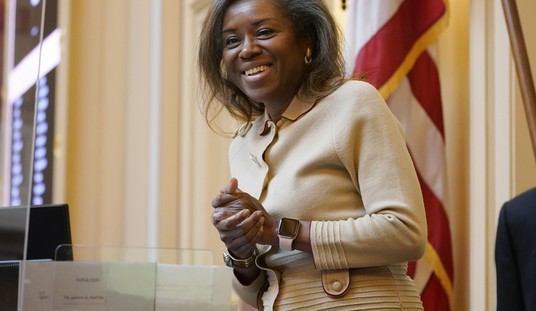Here’s yet another story I never really imagined myself writing about, and yet here we are. In Florida, a lawsuit dragging on for several years involving a strip club is on its way back to the state supreme court in the coming months. This case doesn’t have anything to do with what was going on inside the club, but rather events that unfolded outside where the bouncer was working. In 2018, outside of Rachel’s, a “gentleman’s club” in Orlando, two young women were stopped and refused entry to the bar, despite being of legal age to be there. The club’s manager informed them they would not be allowed inside because they weren’t there with a man, and female customers were only allowed inside if they are part of a couple. They hired an attorney and took the club owners to court, but they eventually somehow lost their case. Now their lawyer is taking another bite at the apple. (Orlando Sentinel)
The attorney for two women who were denied entry into an Orlando strip club in 2018 because they weren’t with a man said Friday he plans to take their case to the Florida Supreme Court again because the issue is more than who can have fun at a gentlemen’s club.
It’s whether local governments can enact anti-discrimination ordinances that offer more protections than the Florida Civil Rights Act, said Matthew Dietz, a Miami attorney who represents Brittney Smith and Anita Yanes.
“We do believe that this issue is so important,” Dietz said. “We’re living in a time when these rights are being constricted.”
On the surface, it doesn’t seem as if this case should have been all that complicated. Refusing entry to potential customers who are doing nothing inappropriate based solely on their gender should not be an allowable policy. The Orlando area even has an anti-discrimination ordinance in place to forbid such policies. For their part, the club claims the policy is in place to “prevent prostitution and potential domestic violence,” but both of those arguments ring hollow.
There was no indication that the two women were engaged in prostitution. If they had gone inside and started soliciting “clients,” they could certainly have been ejected. But they claimed they simply enjoyed watching the dancers and wanted to check out one who looked remarkably like one of them. The club seems to be walking a rather fragile line with this explanation. Are they saying that men having nearly naked women give them lap dances is just fine, but prostitution is a bridge too far? I suspect they’re just trying to avoid having non-employees providing competition for the dancers, which seems questionable in legal terms as well.
The “domestic violence” explanation is supposedly intended to stop wives from coming into the club and dragging their husbands out. But if that began happening, both of them could be similarly ejected. Also, there’s nothing preventing a wife from having a male friend drive her to the club where she would have been allowed to enter anyway. That seems to be a case of uneven enforcement as well.
Attorneys for the club argued that the local anti-discrimination ordinance is superseded by the state’s Civil Rights Act, which doesn’t provide the same level of protection against discrimination. I’m rather amazed that they got the courts to agree that an additional layer of local protection could be dismissed because of a state law ostensibly intended to prevent the same types of offenses.
Personally, I haven’t been to a club like that since a bachelor party for one of my friends many years ago. It just so happened that I went with an old friend of mine who is a lesbian. While she doesn’t go often, she told me that she does enjoy the entertainment and she tends to tip better than the male customers, so the dancers like it when she shows up. But that’s just a reminder that the club’s policy also seems to discriminate against potential customers based on their sexual orientation as well as their gender.
Businesses should largely be free to decide who they serve and places serving alcohol have more leeway than employers such as grocery stores. But the policies have to be applied evenly. In the case of Rachel’s, they don’t seem to be following that rule of thumb.







